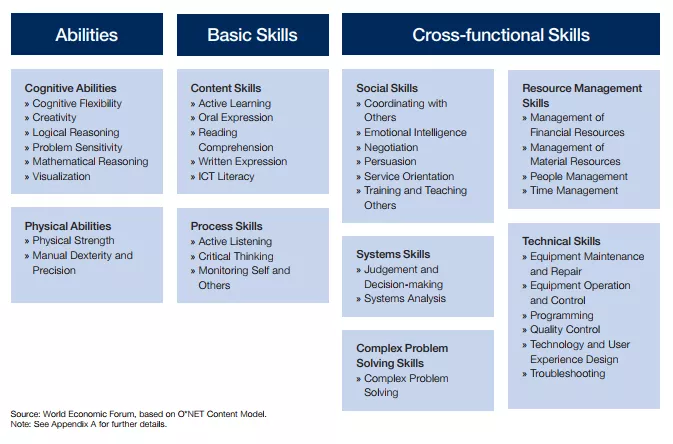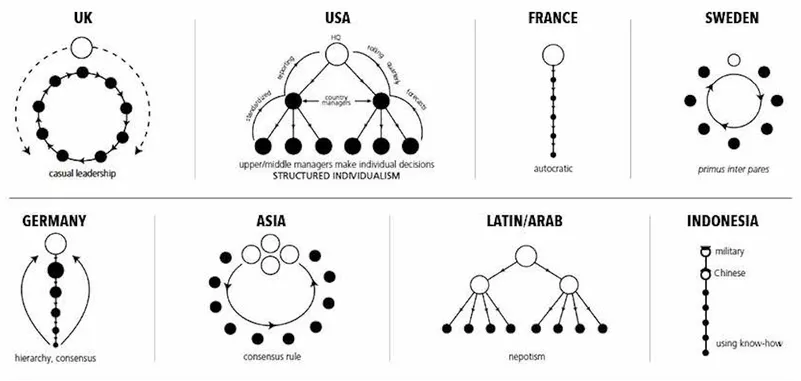In a changing economic environment and society, the qualities required to become a leader are being eroded in favour of new personal skills. In companies that are increasingly horizontal and less and less pyramidal, authority and bravery are giving way to a new form of influence: leadership. You’ve managed to evolve in your company with brilliance, whether it’s through experience or natural ability. You would like to take a new step forward. To do so, you need to consolidate your knowledge and challenge and learn ways of building leadership skills.
Why building your leadership skills?
From pyramidal to horizontal management model
Management is the art of uniting employees on a daily basis, around a common project for the success of a company. The hierarchical pyramid model no longer works, due to a lack of agility and because employees’ expectations have changed. As a manager or future manager, you need to understand and guide this transformation with new skills.
Yesterday’s pyramidal or horizontal management model was guided by qualities of control, rigor, authority and top-down communication.
What are the leadership skills?
Now your company is asking you to demonstrate critical thinking, creativity, emotional intelligence, agility, negotiation and coordination. Beyond expertise, these soft skills have become essential to evolve into management positions. One thing is certain, management is no longer the same and the leading manager must acquire new skills.

To access international positions, you will also need to work in a networked world and be comfortable with multicultural management.

If you join an innovative company, you will need to leverage your talents across generations and demonstrate your ability to innovate. These different management needs require new concepts and techniques to move from theory to practice.
How to build leadership skills?
A change of posture
Why do we talk about leadership in management? Quite simply because this path will allow you to evolve rapidly and sustainably in your company. Leadership is the legitimate and informal way to exert an influence that your employees will choose rather than accept. In other words, leading managers are guides rather than chiefs.
This change of posture implies adopting automatisms through concrete situations. Adopting a change of posture is required in specific situations:
- using the right techniques of communication and persuasion by exercising situational intelligence
- building trusting relationships and facilitating feedback with teams
- inspiring and guiding employees by leading meetings
- give meaning and share the vision to launch a corporate strategy
- empowering instead of delegating and being able to lead by example
Some people are natural leaders
1/ Study leaders that you admire
2/ Always see the big picture
3/ Delegate effectively
4/ Taking initiatives
5/ Develop situational awareness
6/ Inspire others
7/ Empower your teammates
8/ Resolve conflicts
9/ Be a good listener
10/ Keep learning and take leadership and management training
Finding your management style through training
The whole point of management training is to help you take on responsibilities and find the management style that matches your personality. A leader seeks fulfilment for his employees and himself. A person who has not taken the necessary distance to get to know himself well will find it difficult to manage situations of intense stress calmly and make decisive choices under pressure.
EDHEC’s Online Programmes include an individual development contract. You will be fully involved in your own career path. It is also up to you to set your objectives. Your mentors will be your guides in achieving them and putting them into practice. A team of professional coaches will put you to the test in order to teach you how to make decisions under stress, control your emotions, and reveal your potential.
“I wanted to consolidate my professional skills, bring new content in terms of management, question myself on my practices, take stock of where I was in my work or in my way of being and managing my colleagues.”
Mathieu VIERNE, Human Resources Manager, Nice
A leader at the service of employees
Management training gives you the means to be at the side of your teams as they take the initiative. It is in this climate favourable to creativity that you will develop an innovative strategy and demonstrate your capacities as a visionary leader. With a view to career development, it is a real source of differentiation with other candidates.
The leader of the future will be the one who invests in the development of each individual while knowing how to get the best out of his teams. He will no longer be authoritarian or directive; he will become a facilitator of exchanges, resources and business.
Corporate leadership positions take you out of your comfort zone and out of your area of expertise. That’s why management training is a must.
Management training: from theory to practice
Management training must bring out your ability to have a 360° vision in company management. Beyond your ability to lead people, it will enable you to acquire solid legal, financial and digital knowledge. The knowledge of digital issues and the ability to integrate new technologies in your choices will be particularly appreciated, whatever the sector. With these skills, you will gain legitimate access to strategic cross-divisional management positions.
EDHEC’s 100% distance learning Manager Training is built on a pragmatic approach to the new challenges of tomorrow’s business:
- deciding to create value
- transforming to innovate
- creating an agile organisation
- constructing a support network that will last
An innovative approach
By following a management course, you will be able to exercise your skills in project management, communication, audit and financial analysis, HR development, change management and collective intelligence.
A risk approach with experts in the sector will be essential to fully understand your legal and criminal responsibilities as a director. Finally, simulations and immersions will allow you to develop your managerial skills in practice.
Situational exercises will allow you to fully embody your leadership role in new situations:
- the ability to exercise cross-functional management
- encourage team development and motivation thanks to collective intelligence
- create a favourable climate where risk-taking and error are allowed and encouraged
- to practice conscious leadership in harmony with oneself
- decide and collaborate to succeed
Things to remember
A management training course aims to give you the skills to move swiftly into a management position. In full awareness of your new skillset within the corporate environment, this programme will be a springboard to promotion within your organisation. It will accelerate your knowledge of digital technology, sharpen your interpersonal skills, and provide you with the operational tools and concrete strategies that you will be able to implement in your future management position.



